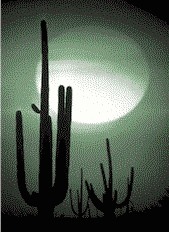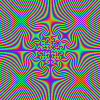What makes a white middle-class man, with a relatively privileged upbringing, turn to Islam?
Question time'Islam is one of the world's great religions, not a cult': Yahya Birt, son of Sir John, on faith, family and the people who think he's a 'crank'
read the complete article at: The Guardian
Yahya Birt, 38, converted to Islam in 1997. A research fellow at the Islamic Foundation in Leicester, he is about to become director of City Circle, an organisation for Muslim professionals.
How would you describe yourself, faith-wise?
A mainstream Muslim who has liberal values.
How does your faith sit with your background ?
I like to say that I'm British and Muslim; I don't think that they have to be in opposition.
Which comes first?
That's a question I don't think we should ask. They are different things. I'm a citizen of this country, I'm a voter, I work in civil society, I take part in things, but my values are informed by my experience of growing up here and by my religion
[...]
Are people baffled by the fact you are a convert?
I expect that some people will be baffled and I'm happy for them to be baffled.
Are other Muslims welcoming of converts?
Yes, absolutely.
The image of a convert is typically young, non-white and working-class, but is this correct?
Probably not. Most converts still come from a Caucasian background - probably about 60%. They come from all classes and backgrounds and all kinds of different backgrounds of faith, or no faith. It's hard to find an absolute profile of a typical convert.
What makes a white middle-class man, with a relatively privileged upbringing, turn to Islam?
It seemed like a good idea at the time.
Does it still seem a good idea?
Yes, absolutely.
Is the faith of a convert stronger than the faith of somebody who grew up with the religion?
I think only God knows the answer to that.
...
What would you say to parents who might be worried if their child announced their conversion?
I would say, don't panic. They are joining one of the world's great religions, not a cult. But just make sure that they are part of the mainstream of the Muslim community.
Did your family panic?
No. [Laughs.]
Do people consider you a crank?
Possibly, quite possibly. I think there is a mood of, let's say sceptical atheism, which is saying that religion is on the march in British life, and in no shape or form is it a good thing. That strand of opinion is probably unhelpful. I'm sure all the faith communities have something positive to give, as long as they are doing it in the spirit of contributing to the common good.
read the complete article at: The Guardian
Yahya Birt, 38, converted to Islam in 1997. A research fellow at the Islamic Foundation in Leicester, he is about to become director of City Circle, an organisation for Muslim professionals.
How would you describe yourself, faith-wise?
A mainstream Muslim who has liberal values.
How does your faith sit with your background ?
I like to say that I'm British and Muslim; I don't think that they have to be in opposition.
Which comes first?
That's a question I don't think we should ask. They are different things. I'm a citizen of this country, I'm a voter, I work in civil society, I take part in things, but my values are informed by my experience of growing up here and by my religion
[...]
Are people baffled by the fact you are a convert?
I expect that some people will be baffled and I'm happy for them to be baffled.
Are other Muslims welcoming of converts?
Yes, absolutely.
The image of a convert is typically young, non-white and working-class, but is this correct?
Probably not. Most converts still come from a Caucasian background - probably about 60%. They come from all classes and backgrounds and all kinds of different backgrounds of faith, or no faith. It's hard to find an absolute profile of a typical convert.
What makes a white middle-class man, with a relatively privileged upbringing, turn to Islam?
It seemed like a good idea at the time.
Does it still seem a good idea?
Yes, absolutely.
Is the faith of a convert stronger than the faith of somebody who grew up with the religion?
I think only God knows the answer to that.
...
What would you say to parents who might be worried if their child announced their conversion?
I would say, don't panic. They are joining one of the world's great religions, not a cult. But just make sure that they are part of the mainstream of the Muslim community.
Did your family panic?
No. [Laughs.]
Do people consider you a crank?
Possibly, quite possibly. I think there is a mood of, let's say sceptical atheism, which is saying that religion is on the march in British life, and in no shape or form is it a good thing. That strand of opinion is probably unhelpful. I'm sure all the faith communities have something positive to give, as long as they are doing it in the spirit of contributing to the common good.


















